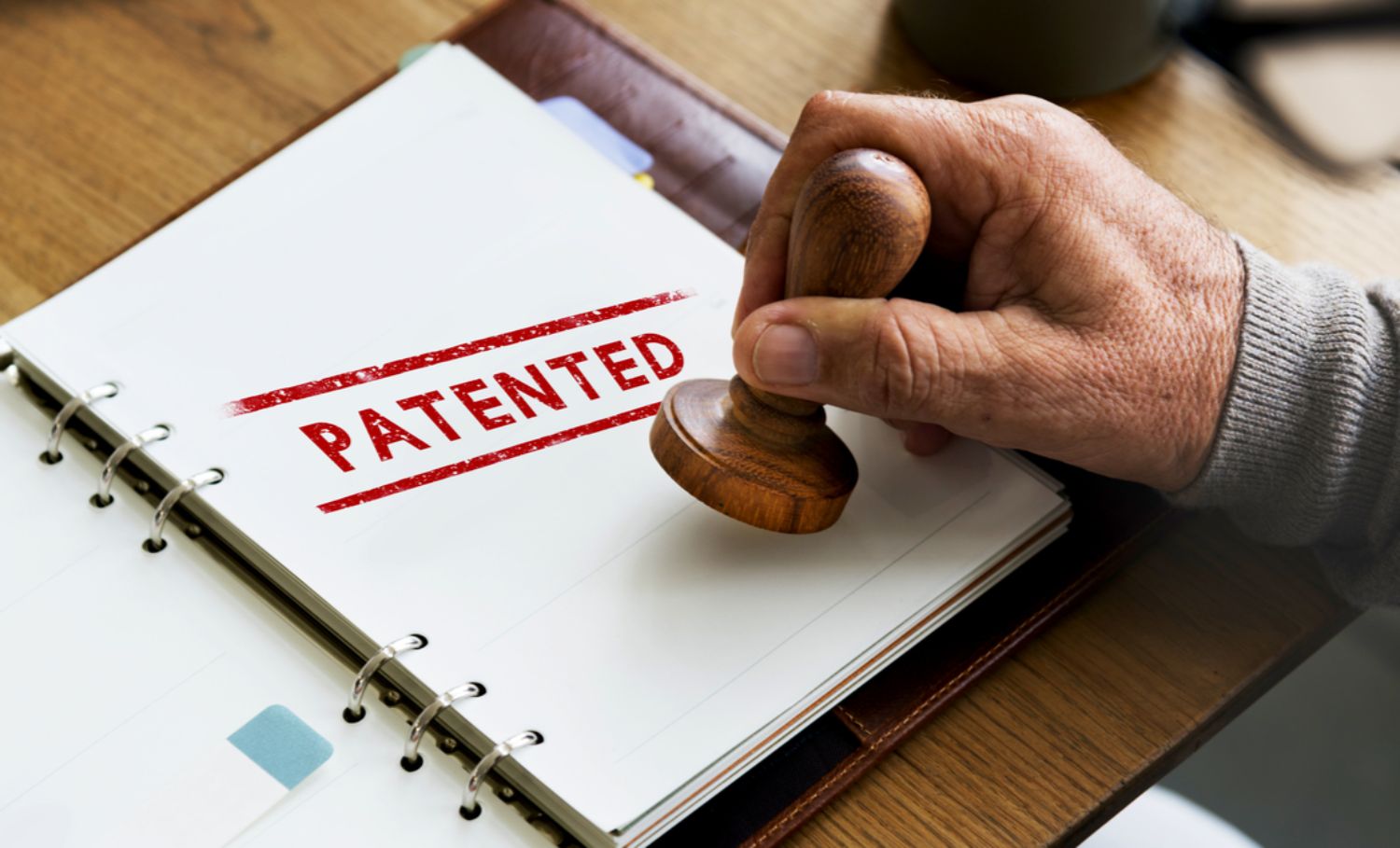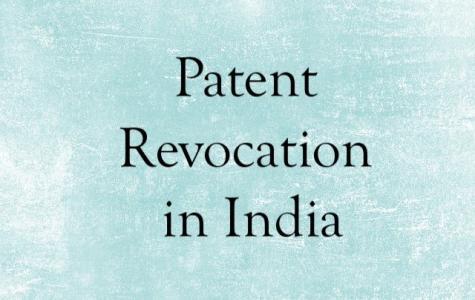Patents and business –Patent Registration in Coimbatore
Patents and business
It is false that patents are only applied to complex physical or chemical processes and products or that they are only useful to bigger corporations or industries. Any area of technology from paper clips to computers can obtain a patent. It is so obvious that whenever the people think of the word patent, they start thinking about major scientific breakthroughs like Edison’s first electric lamp, or large corporations investing in research and development. But most of the patents are granted for inventions that make improvements to already existing inventions. For instance, the 2nd or 3rd generation of a product or a process which can work in a more cost-effective or efficient manner. Many countries also have specific legal provisions (called utility models) for protecting the incremental innovations. As compared to patents, they tend to have a shorter duration and are generally easier to obtain.

Patent is an exclusive right that prevents or stops others from commercially exploiting an invention for a time period of 20 years from the date of filing of the patent application. It is to get good returns on investment, as an inventor has invested a considerable amount of money and time in developing innovative products. By obtaining a patent he may be able to establish himself in the market as an eminent player and can obtain higher returns on investments. Inventor gets an opportunity to license or sell his invention if in case he does not want to use the patent himself. It will become a source of income for him or his company.
In some countries, a patent applicant’s intention to grant a license to third parties can be published in the official gazette. In general however, it is possible to say that if an inventor intends to license his patent registration in Coimbatore, what is important is a diligent preparation. Before starting negotiation with a potential license, he should be informed of the current situation and future prospects of the relevant market and technology. Moreover, he should find out about the commercial state of a potential license and the associated financial value of the patent. He should reflect on his own business objectives and carefully consider how entering into a licensing agreement fits into the short and long business strategies term.
In many cases, where an enterprise has merely improved an existing product and the said improvement is not sufficiently inventive to be deemed patentable, utility models may represent a good alternative, if available in the country in question. On occasions, it may be advisable for the company to keep it’s innovations as trade secrets which requires that sufficient measures are taken to keep the information confidential. Another alternative strategy could be to ensure that no one is able to patent the invention by disclosing it, thereby assuring its place in the public domain. However, patentee should carefully reflect on using this strategy, since if inventor discloses his invention before filing a patent application, he will severely limit the possibility to obtain patent protection.
In most countries, if an employee has developed an invention in execution of his/her employment contract, usually during his/her working time within the enterprise; the invention (and the related patent rights) will belong to the enterprise. To avoid confusion and possible disputes, employers often specify issues of intellectual property ownership in employment contracts. Depending on the merits of the case, the employee may, however, have a right to equitable remuneration in accordance with legislative provisions or the employment contract. In any case, the employee will always retain the right to be mentioned as the inventor, unless he/she expressly renounces this right.
Patent Information
National and regional patent offices publish the patent documents normally 18 months after the date on which a patent application was filed first or once a patent has been granted. In order to make the access to the patent information easier, some of the patent offices publish patent documents via free-of-charge online databases. To use this information effectively, certain skills are required, including carrying out targeted patent searches and providing meaningful analysis of patent search results. However, for the purpose of business related decisions, it is advisable to contact a patent information professional for assistance. For individuals and institutions in developing countries, WIPO Patent Information Services (WPIS) provide free-of-charge patent search services. WIPO’s PATENTSCOPE database provides free-of-charge online access to millions of international patent applications filed under the PCT System as well as patent documents filed at various national and regional patent offices around the world. WIPO also supports the establishment and development of Technology and Innovation Support Centers (TISCS), which provide patent registration in Coimbatore information and related services in many countries throughout the world.
WIPO works to create a symmetrical and effectual international Intellectual Property (IP) system, a key part of which is devoted to patents. Member states of WIPO work in various areas, including on agreeing to the treaties and conventions for supporting the international IP system and making the global exchange of creativity and innovation possible. Services offered by WIPO, like facilitation of international patent protection under the PCT System complements various services that are available at the national and/or regional level. However, WIPO does not actually grant patents. Patents can be provided for a new, non-obvious and useful process, machines, articles of manufacture, composition of matter and an improvement of any of the above. In addition to the categories mentioned above, patent protection is also available for ornamental design of an article of manufacture or asexually reproduced plant varieties by design and plant patents.
There are many things that cannot be patented; like
1. Laws of Nature
2. Physical phenomena
3. Abstract ideas
4. Literary, dramatic, musical, and artistic works (these can be Copyright protected).
Inventions which are:
1. Not useful (such as perpetual motion machines); or
2. Offensive to public morality.
It is possible to challenge a patent. Validity of granted patents can be challenged in Court, as per the Patent systems around the world, including those of major jurisdictions such as Europe, US, Japan, Korea and China. This is to check robustness.
A patent provides greater affirmation to the company in defending the companies’ invention; it also helps the company to know the patents claimed by their competitors. This will help in avoiding an infringement. And, with valid patents, both parties could consider greater collaborations and licensing arrangements. Normally, the decision to patent an invention is considered within the larger framework of a company’s product strategies and business models. In India, there are four dispute resolution platforms with the following responsibilities:
Indian Patent Office (IPO): The IPO analyzes the patent applications and grants them if they follow the Indian patent laws. Also it keeps the record of improvement and working of patents and also participates in settling the disputes related to pre-grant and post-grant oppositions. The administrative functions of the IPO include the formulation and implementation of rules and procedures.
IP Appellate Board (IPAB): The IPAB hears patent-related conflicts in the country. An IPAB which is equivalent to Indian High Courts hears revocation proceedings and the appeals originating out of decisions of the controller of patents. Many technical and legal experts handle the IP matters.
District Courts and High Courts
The Indian district courts are the first level to be approached for applying patent rights by filing the infringement suits. Further the Indian high courts hear the appeals arising out of the decisions of the district courts.
Supreme Court
The Supreme Court of India hears appeals against the decisions of the IPAB and the high courts. The decision of the Supreme Court is not appealable, as it is an apex body of the Indian judicial system. However, the Supreme Court can review its own decision. The following remedies are available in case a patent right is misused.
Compulsory license:
The government forces the holder of a patent to grant use of his invention by others for through the grant of compulsory license. Usually, the holder does get some royalties, either set by law or determine through some form of judicial decision. In case in the owner of a patent abuse his patent rights then the Controller may grant a license on an application made to him by any other interested person, three years after the grant of a patent. According to Section 84 of the Patent Act, Controller may grant compulsory license on patent on any of the following grounds, namely:
1. That the sensible requirements of the public with respect to the patented invention have not been satisfied; or
2. That the patented invention is not accessible to the public at a reasonable affordable price; or
3. That the patented invention is not active in the territory of India.
Revocation
In accordance to Section 64 of the Patent Act any interested person including the government can make a petition for revocation of patent on any of the various grounds mentioned in this particular section. Further, High Court may revoke a patent if the patentee does not permit the government to utilize it.
In accordance to Section 64(4), a patent may be revoked by the High Court on the request of the Central Government, if the High Court is satisfied that the patentee has without reasonable cause failed to follow the request of the Central Government to make, use or employ the patented invention for the intent of the government upon reasonless terms.
Revocation of patents for non-working
Where a compulsory license has been granted, the Central Government or any interested person, may after the expiration of two years from the date of order granting the first compulsory license, applies to the Controller for revoking the patent on the ground that the patented invention has not been worked in the territory of India or that reasonable requirements of the public with respect to patented invention has not been satisfied or that the patented invention is not available to the public at a reasonably affordable price.

